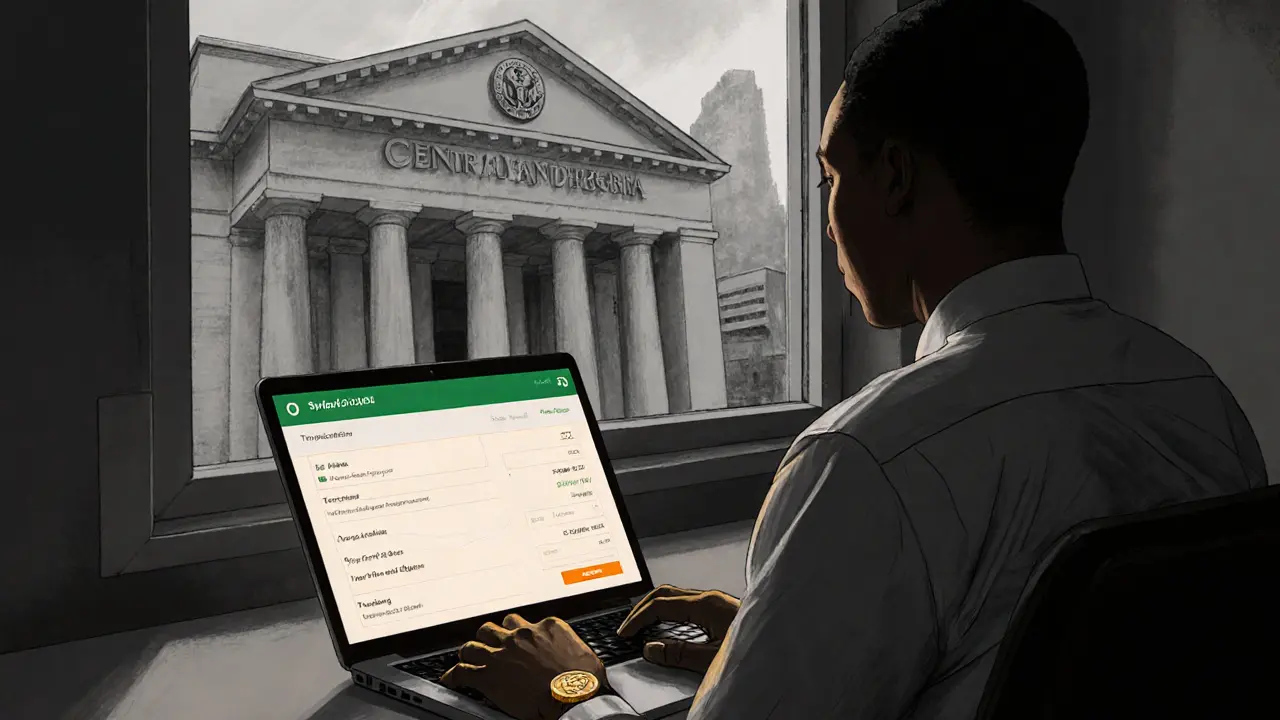Learn how Nigerian banks handle crypto-to-fiat withdrawals in 2025, including regulations, limits, risks, fees, and best practices for smooth transactions.
Bank Crypto Nigeria: Bridging Traditional Banking and Crypto
When talking about Bank Crypto Nigeria, the practice of linking Nigerian bank accounts with cryptocurrency services. Also known as crypto banking in Nigeria, it lets users move money between fiat and digital assets without leaving their local financial ecosystem. This approach grew fast after the Central Bank of Nigeria limited direct crypto purchases, pushing people to find workarounds that keep their money in familiar bank accounts.
One of the main pillars of this ecosystem is the crypto exchange, online platforms that let you trade fiat for crypto and back again. Exchanges act as the bridge, offering deposit methods like ACH, instant EFT, or QR‑code payments that connect directly to Nigerian banks. Another key piece is the regulatory environment, the set of rules and guidelines from the CBN and other authorities. While the regulator bans direct crypto purchases, it still permits certain crypto‑related services, creating a gray area that innovators exploit. Finally, stablecoins, digital tokens pegged to the Nigerian naira or US dollar, provide a low‑volatility way to hold value while staying on a blockchain.
Bank Crypto Nigeria encompasses three core activities: (1) depositing naira from a local bank into a crypto exchange, (2) converting that naira into a stablecoin or a major crypto like Bitcoin, and (3) withdrawing the crypto back to a bank account via a peer‑to‑peer channel or an OTC desk. Users need a digital wallet to store the assets once they leave the exchange; mobile wallets are popular because they work on low‑end smartphones and require only a short PIN. The whole flow requires awareness of fees, transaction limits, and KYC requirements, which differ from one service to another.
If you’re wondering why this matters, consider the real‑world impact. In 2023, over 30 million Nigerians turned to crypto for cross‑border payments, and many of them relied on bank‑linked solutions to avoid cash‑out hassles. Stablecoins like USDT or the locally created NGN‑pegged tokens helped users keep buying power during inflation spikes. At the same time, the regulatory environment forced exchanges to adopt stricter KYC, which reduces fraud but also raises the cost of entry for new users. Understanding these trade‑offs lets you pick the right mix of exchange, wallet, and stablecoin for your needs.
Below you’ll find a curated set of articles that dive deeper into each piece of the puzzle. From reviews of the top Nigerian‑friendly exchanges to step‑by‑step guides on setting up a mobile wallet, the collection covers practical tools, risk tips, and the latest policy updates. Whether you’re just starting out or looking to optimize an existing crypto‑bank link, the posts ahead give you the context and actionable advice you need.

